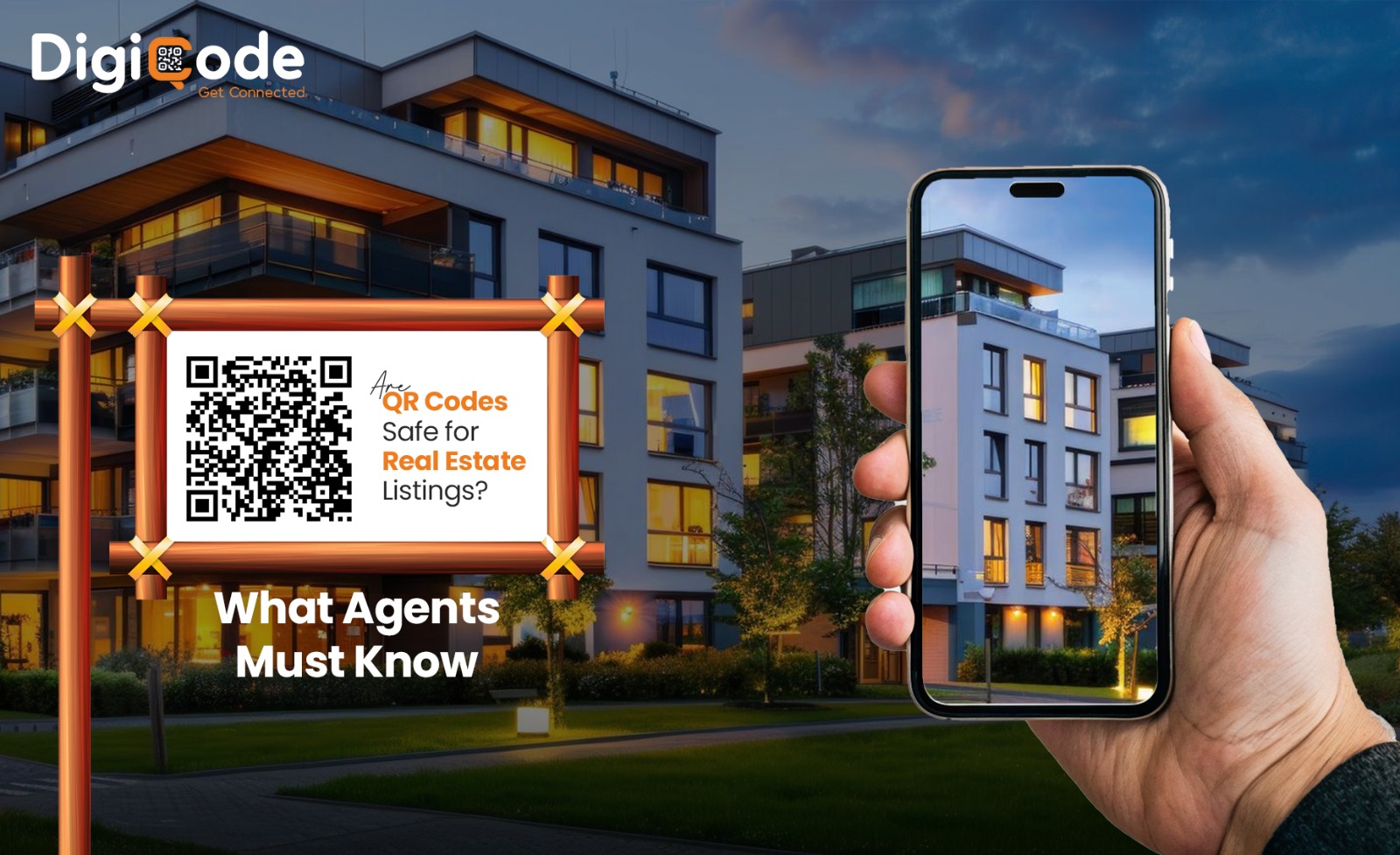
Are QR Codes Safe for Real Estate Listings? What Agents Must Know
Category: Real Estate
In the last few years, QR codes for real estate have quietly
become a backbone of marketing. Walk around any city and you’ll spot them on
property signboards, brochures, or even on business cards. For real estate
agents, QR codes make life easier.
Buyers scan & instantly land on listing pages, floorplans, or virtual tours
without having to type long URLs. According to industry reports, over 40% of
smartphone users globally scan QR codes at least once a month, which shows how
accepted the practice has become.
But the big question that comes up is -
are these codes really safe to use in real estate? The answer is yes, provided
you understand how risks work & take the right precautions.
How real estate
professionals actually use QR codes
Real estate
marketing with QR codes is essentially a shortcut. Instead of
asking a client to search for your property, you give them a scan-and-go tool.
Most agents today use QR codes for:
●
Linking to property detail pages and
MLS listings (QR codes for property listings)
●
Giving instant access to 3D
walkthroughs or video tours (QR code for
open house flyers or invitations)
●
Connecting signboard traffic to
websites (QR code for real estate signs)
●
Sharing contact details with a real estate business card QR code
●
Distributing digital brochures,
especially where printing high-quality pictures is costly (QR code for real estate flyer)
What makes them powerful is the
convenience factor. In a competitive business like real estate, saving a
potential buyer even 10 seconds of effort can mean the difference between a
lost lead and a call back.
Where the risks actually
are
Like any technology, QR codes can be
misused. Hackers have found ways to replace or tamper with codes in public
spaces. One common trick is “QR phishing”. It involves putting a fake sticker
on top of a genuine one, redirecting buyers to a suspicious page. Once there,
people may be tricked into entering personal information.
Another issue comes from poorly managed codes.
For example, if you create a static code that links to a page which later gets
deleted, the buyer ends up at a dead end. That not only looks unprofessional
but can also cost you leads. The good news is that these risks don’t come from
the QR code itself but from how it’s created and managed.
How to make QR codes safe
for your listings
Here’s what agents and marketers follow
as ground rules:
- Always use HTTPS links - This ensures that the landing page is encrypted and secure.
- Prefer dynamic codes - They let you edit the link later, disable
the code if needed, and track scans. If a mistake happens, you can fix it
without reprinting.
- Brand your codes - A code
linked to your domain looks more trustworthy than a random short URL.
- Check your signboards - If
you’re putting QR codes outdoors, make sure no one has tampered them.
- Keep landing pages
simple - Don’t ask for too much data. Show the
property details upfront and then give an option to connect.
For anyone wondering how to use QR codes in real estate safely,
this checklist works as a reliable starting point.
Safe, Smart, and Backed
by the Right Partner
Once you start using QR codes properly,
the numbers tell their own story. Dynamic codes let you track how many times a
property was scanned, at what time of day, and even from which campaign.
Imagine running two different flyers for an open house and then seeing which
one drove more visits. That's data you can actually act upon.
So, are QR codes safe for real estate?
Absolutely, as long as you use them wisely. For agents, they cut friction,
boost lead capture, and bridge offline and online marketing in ways that buyers
actually appreciate. The real question is not whether to use them, but which
you should trust.
At Digiclaw,
we’ve built our real estate QR code generator
with these exact needs in mind. Our platform gives you dynamic codes that can
be updated anytime, detailed analytics to measure performance, and
customization options that match your brand identity. We ensure every code you
create is secure, reliable, and easy to manage, because we know how much trust
matters.
If you’re ready to create QR code for real estate that is
safe, trackable, and effective, our QR
Code Generator is here to make that process seamless.
FAQs
Q1.
Can a QR code be hacked?
Not the code
itself but if the link points to a malicious or tampered site, users can be at
risk. That’s why secure generators and HTTPS pages matter.
Q2.
Should I use static or dynamic QR codes for real estate?
Dynamic codes
are better because you can update or disable them anytime and also track scans.
Static codes don’t offer that flexibility.
Q3.
How do I keep QR codes safe on outdoor signs?
Check your
boards regularly, use tamper-proof stickers, and always redirect to a branded,
secure landing page.